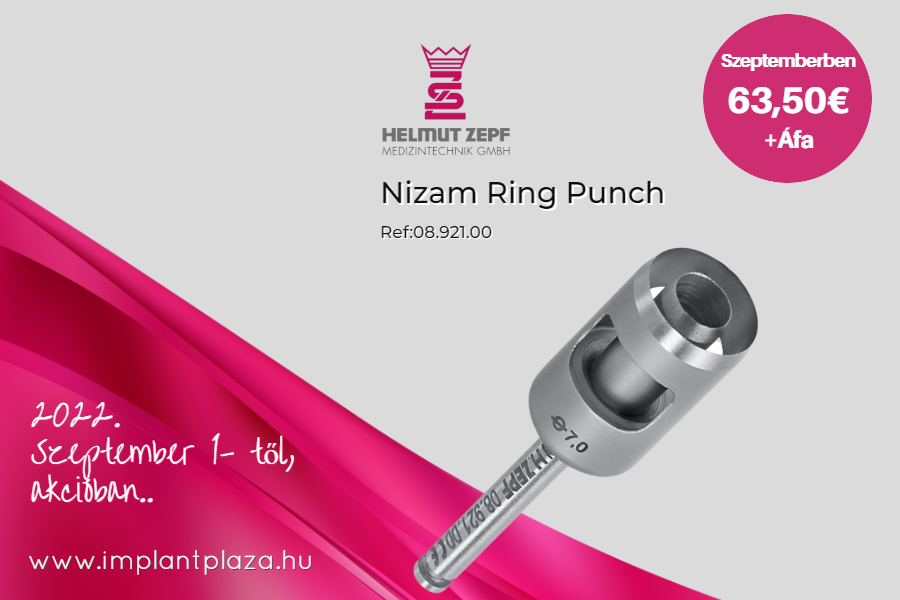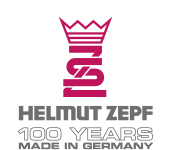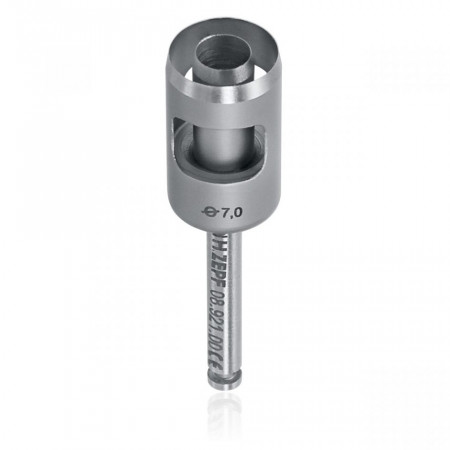Helmut Zepf - NIZAM For circular soft fabric 7mm p
A Nizam Ring Punch helps to form the ring-shaped Körtrepan soft tissue part.
The ring graft can be effectively used for peri-implant soft tissue augmentation around the neck of the implant.
LINK for a more detailed product and application description in English.
Surgical length size 5mm, inner diameter ⌀ 4 mm ⌀, outer diameter ⌀ 7 mm
Nizam Ring Punch
Soft tissue augmentation with ring-shaped keratinized tissue grafts (kTG), harvested with the NIZAM Ring Punch.
Keratinized tissue grafts (kTGs) are widely used in mod- ern implantology for peri-implant soft tissue management and in various periodontal plastic surgical interventions such as root coverage, papilla reconstructions and alve- olar ridge preservation. kTGs are accepted as the gold standard for root coverage procedures and peri-implant soft tissue augmentation techniques, since they have high success rates and satisfactory esthetic outcomes.

However, kTG harvesting methods are technique sensi- tive procedures that need a certain level of surgical skill and experience, and may cause complications such as postoperative hemorrhage, pain, swelling, flap necrosis and sensitivity in the donor area.
The ring method is a simplified novel kTG harvesting technique which can be used in the maxillary tuberosity area in particular. A special kTG harvesting punch is fabricated to obtain a ring-shaped kTG that has a uniform thickness. The ring graft can then be used for peri-im- plant and periodontal soft tissue augmentation purposes with successful clinical outcomes.
The punch is composed of two sharp punches and a shank, which fits to a contra-angle. 
The punch is placed perpendicular to the soft tissue sur- face and at least 1 mm away from the neighboring teeth. The contra-angle is used at 50 rpm without irrigation, and the punch penetrates the soft tissue until it reaches the bone surface and is then removed gently. The kTG punch creates two circular incision lines parallel to one another. A fine elevator is used to remove the ring graft by blunt dissection, leaving a soft tissue island in the donor area. The graft is soaked in saline to prevent dehydration unit stabilized to the recipient area. The donor area is not sutured but left for blood clot formation between the soft tissue surfaces.
The ring technique is a technically intensive method that can be used to harvest kTG, mainly from the maxillary tuberosity. The ring graft can be effectively used for
peri-implant soft tissue augmentation purposes.







